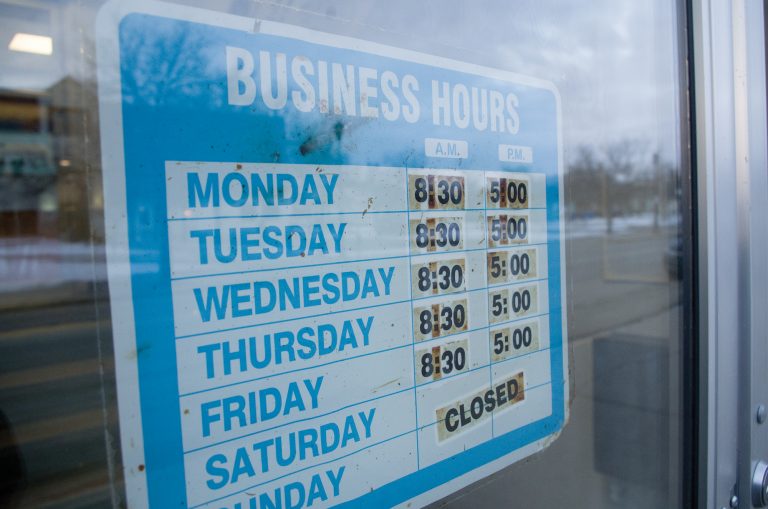
The Prince Albert and Area Chamber of Commerce applauded the provincial government on Monday for allowing businesses to stay open despite the increase in COVID-19 cases.
The chamber’s statement said another lockdown would be “catastrophic to not only our region, but our entire province and country,” even with extensive financial support from the federal and provincial governments.
Although the chamber approved of other measures, like the province-wide mandatory mask order, CEO Elise Hildebrandt said it’s unrealistic to expect local businesses to bounce back if the province shuts down a second time.
“A lot of (businesses) had money in the bank the first time, and many of our businesses can’t do it a second time,” she explained. “They used their savings the first time to help them out. They haven’t had a chance to recoup that, to put anything extra back into their bank accounts.”
Hildebrandt said it’s difficult to say for sure how many businesses in Prince Albert would close if the province locked down again. She said many could probably survive a post-Christmas shutdown, that lasted from Dec. 26 to early January, even though it would cost retail outlets on Boxing Day. However, she said any shutdown remains less than ideal.
The chamber’s statement mirrors an open letter released by the Saskatchewan Chamber of Commerce on Nov. 13. Representatives from 34 different businesses and organizations, including chambers of commerce in Prince Albert, Regina, Saskatoon, Nipawin, North Battleford, and Humboldt, signed the letter. They applauded the government’s targeted approach, and urging them to avoid closing businesses.
“Returning to a wide-spread, large-scale lockdown would be catastrophic to Saskatchewan jobs, Saskatchewan families, and on the immediate survivability of Saskatchewan businesses—even with new and extensive government intervention,” the letter reads. “The health, societal and economic harm would have lasting, irreversible impacts.”
The letter called on all Saskatchewan residents to follow public health guidelines, while also shopping local during the holiday season.
Hildebrandt said many local businesses have established an online presence in the last six months in an attempt to compete with larger companies like Amazon. She’s hopeful Prince Albert residents will reward those efforts.
“From what I’ve been hearing, there’s a lot more people this year, or maybe it’s just that we’re more aware of people who are working to support local,” she said. “If we can just continue that, it would be wonderful, and not just for Christmas, but ongoing through the next couple of months.”
Roughly 78 per cent of Saskatchewan small businesses are fully open, according to a COVID-19 recovery survey conducted by the Canadian Federation of Independent Business in October. That’s the highest percentage out of any province in Canada, and well above the national average of 65 per cent.
However, roughly 52 per cent of Saskatchewan businesses have seen a further drop in sales due to fears of a second wave of COVID-19. That’s almost perfectly in line with the national average.
Statistics Canada reported that half of Canadian businesses were losing at least 30 per cent of their revenue by April. The arts, entertainment, recreation, accommodation and food services sectors were the hardest hit.
Businesses received some help on Monday when the federal government began accepting applications for its commercial rent relief program. The program covers anywhere from 65 to 90 per cent of a business’s rent, depending on how COVID-19 has impacted their revenues. Finance Minister Chrystia Freeland said the measure should be enough to help viable businesses survive the rest of the pandemic.
The new rent assistance program replaces an older one that saw less use because it relied on landlords to apply for help instead of business owners.
